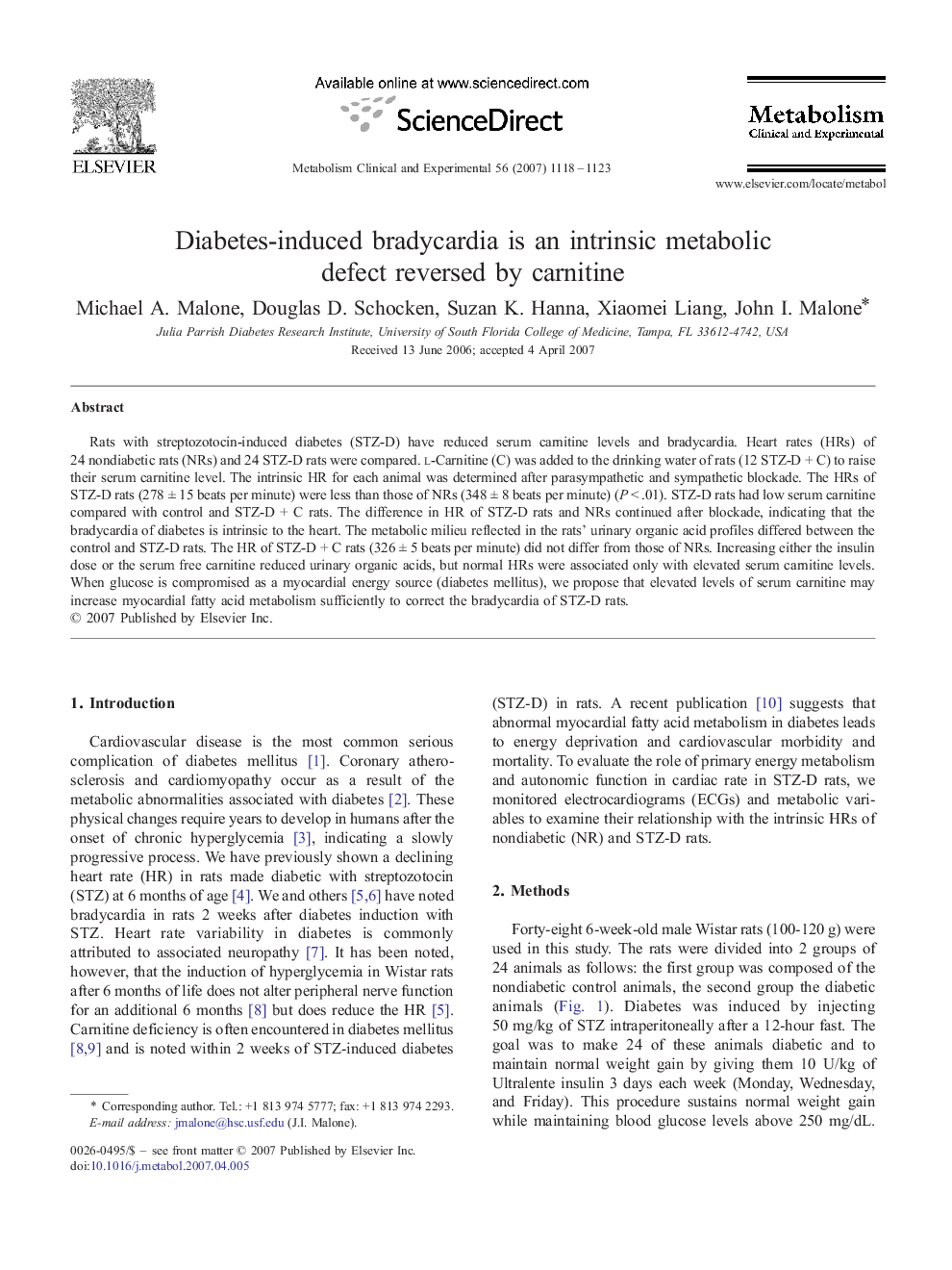| کد مقاله | کد نشریه | سال انتشار | مقاله انگلیسی | نسخه تمام متن |
|---|---|---|---|---|
| 2807401 | 1157163 | 2007 | 6 صفحه PDF | دانلود رایگان |

Rats with streptozotocin-induced diabetes (STZ-D) have reduced serum carnitine levels and bradycardia. Heart rates (HRs) of 24nondiabetic rats (NRs) and 24 STZ-D rats were compared. l-Carnitine (C) was added to the drinking water of rats (12 STZ-D + C) to raise their serum carnitine level. The intrinsic HR for each animal was determined after parasympathetic and sympathetic blockade. The HRs of STZ-D rats (278 ± 15 beats per minute) were less than those of NRs (348 ± 8 beats per minute) (P < .01). STZ-D rats had low serum carnitine compared with control and STZ-D + C rats. The difference in HR of STZ-D rats and NRs continued after blockade, indicating that the bradycardia ofdiabetes is intrinsic to the heart. The metabolic milieu reflected in the rats' urinary organic acid profiles differed between the control and STZ-D rats. The HR of STZ-D + C rats (326 ± 5 beats per minute) did not differ from those of NRs. Increasing either the insulin dose or the serum free carnitine reduced urinary organic acids, but normal HRs were associated only with elevated serum carnitine levels. When glucose is compromised as a myocardial energy source (diabetes mellitus), we propose that elevated levels of serum carnitine may increase myocardial fatty acid metabolism sufficiently to correct the bradycardia of STZ-D rats.
Journal: Metabolism - Volume 56, Issue 8, August 2007, Pages 1118–1123